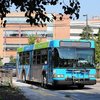The Health 202: Policymakers are realizing health is about a lot more than just care
News Article
Jan 25, 2019
A whole host of factors — such as friends, housing and transportation — affect a person’s health and how much they need the social safety net. It’s time the government’s big health insurance programs took this reality into account, some lawmakers and policymakers are starting to argue.
